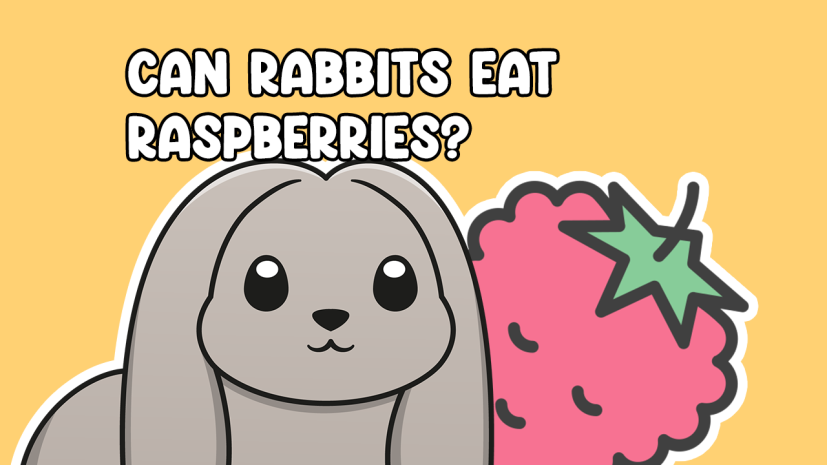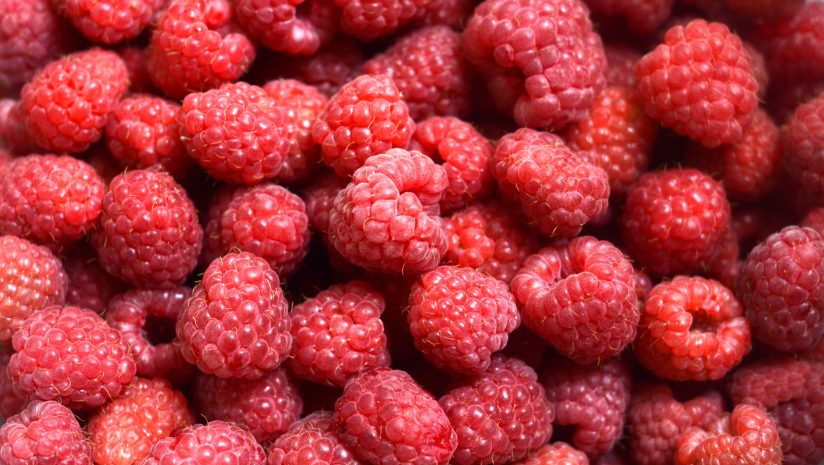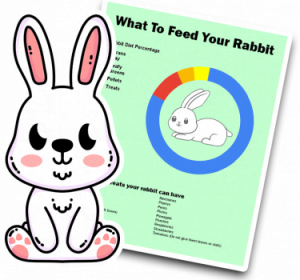
Raspberries are delicious and nutritious fruits that belong to the rose family. They are known for their vibrant red color, sweet taste, and juiciness. Raspberries are packed with essential vitamins, minerals, and antioxidants, making them a popular choice for human consumption. But can bunnies enjoy these tasty berries too?
Yes, bunnies can eat raspberries, but it’s important to remember that moderation is key. While raspberries offer several health benefits, they should only be given as an occasional treat, not as a staple food in a rabbit’s diet.
Raspberries are a fantastic source of vitamins and minerals that can contribute to a rabbit’s overall health. They contain high levels of vitamin C, essential for a rabbit’s immune system, and can promote healthy skin and coat. Additionally, raspberries are rich in dietary fiber, which aids in maintaining a healthy digestive system.
| Nutrient | Amount | % Daily Value |
|---|---|---|
| Calories | 64 | – |
| Total Fat | 0.8g | 1% |
| Sodium | 1.2mg | 0% |
| Total Carbohydrate | 15g | 5% |
| Dietary Fiber | 8g | 29% |
| Sugar | 5.4g | – |
| Protein | 1.5g | 3% |
| Vitamin D | 0mcg | 0% |
| Calcium | 31mg | 2% |
| Iron | 0.9mg | 5% |
| Potassium | 186mg | 4% |
| Vitamin A, RAE | 2.46 mcg | 0% |
| Vitamin C [Ascorbic acid] | 32.2 mg | 36% |
| Vitamin E (alpha-tocopherol) | 1.07 mg | 7% |
| Vitamin K | 9.6 mcg | 8% |
| Choline | 15.1 mg | 3% |
| Copper | 0.11 mg | 12% |
| Magnesium | 27.06 mg | 6% |
| Manganese | 0.824 mg | 36% |
| Phosphorus | 35.67 mg | 3% |
| Selenium | 0.25 mcg | 0% |
| Zinc | 0.52 mg | 5% |

When given in moderation, raspberries can be a healthy and enjoyable addition to a rabbit’s diet. Here are some potential benefits of feeding raspberries to your bunny:
While rabbits can enjoy raspberries, it’s crucial to limit their intake due to the fruit’s high sugar content. Ideally, rabbits should have no more than one or two raspberries as a treat once or twice a week. Remember to introduce new foods gradually and monitor your rabbit’s reaction to ensure they tolerate raspberries well.
To maintain a balanced diet, it’s essential to adhere to appropriate portion sizes. When feeding raspberries to your bunny, follow these recommended guidelines:
| Rabbit’s Weight | Portion Size |
|---|---|
| Under 2 pounds | 1-2 small raspberries |
| 2-4 pounds | 2-3 small raspberries |
| Over 4 pounds | 3-4 small raspberries |
Rabbits can enjoy a variety of fruits, but it’s important to introduce them gradually and in moderation. Here are some other fruits that rabbits can eat:
While rabbits can enjoy a wide variety of greens, there are certain vegetables and plants that are toxic to them. It’s crucial to be aware of these greens and avoid feeding them to your rabbit. Here is a list of unsafe vegetables for rabbits:
Rabbits are herbivores and have a natural inclination to graze on vegetation, including fruits and vegetables. In the wild, they would consume various greens, berries, and other edible plants. It’s essential to protect your garden if you have rabbits nearby to prevent them from devouring your plants. Here are some tips for protecting your garden from rabbits:
Rabbits can eat a wide variety of greens, but it’s essential to provide them with a balanced and varied diet. Offering a diverse selection of greens ensures that rabbits receive all the necessary nutrients. Here’s why variety is crucial in a rabbit’s diet:
When introducing new foods to your rabbit, it’s important to do so gradually to avoid digestive upset. Here’s a step-by-step guide on how to introduce raspberries or any new food to your rabbit’s diet:
In conclusion, raspberries can be a tasty and healthy treat for your bunny when given in moderation. Remember to prioritize a balanced diet for your rabbit, consisting mainly of fresh hay, high-quality pellets, and a variety of leafy greens. While bunnies can enjoy raspberries, it’s essential to monitor their portion sizes and observe any adverse reactions. Providing a safe and diverse diet will contribute to your rabbit’s overall well-being and happiness.
No, rabbits should not eat raspberries every day. Raspberries should be given as an occasional treat due to their high sugar content.
Yes, rabbits can eat raspberry leaves. They are safe and can be offered as part of their leafy greens.
Yes, rabbits can eat frozen raspberries, but it’s best to thaw them before feeding. Frozen raspberries can be a refreshing treat during hot weather.
Baby rabbits, known as kits, have delicate digestive systems. It’s recommended to wait until they are at least three months old before introducing any new foods, including raspberries.
Rabbit digestive systems are not designed to process seeds effectively. While a few raspberry seeds may pass through harmlessly, it’s best to remove the seeds before feeding raspberries to your rabbit.
No, rabbits should not be given raspberry jam. Jam typically contains high amounts of added sugar and other ingredients that are not suitable for rabbits.

By entering your email address you agree to receive emails from Cottontailclub. We'll respect your privacy and you can unsubscribe at any time.